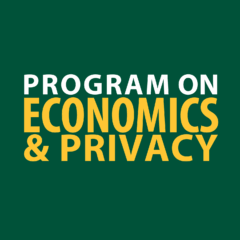Last week, PEP responded to the Federal Trade Commission’s (FTC) request for public comment on technology platform censorship of user content.
In this comment, PEP analyzes the First Amendment and the FTC Act to make three main points:
- The First Amendment places limits on the Commission’s ability to police technology platforms’ content moderation under the FTC Act;
- Several serious legal hurdles are likely to prevent the FTC from establishing that technology platforms’ content moderation decisions comprise “unfair methods of competition”; and
- Other than in very narrow circumstances, it is unlikely that platform censorship constitutes “unfair or deceptive acts or practices.”
PEP’s comments emphasize that given heavy dependence on digital platforms for access to vital information, decisions addressing censorship concerns have far-reaching impact. However, the authority Congress granted the FTC to prohibit “unfair methods of competition” or “unfair or deceptive acts or practices” does not appear to be the appropriate mechanism to address these concerns.
You can view the full comment here.

